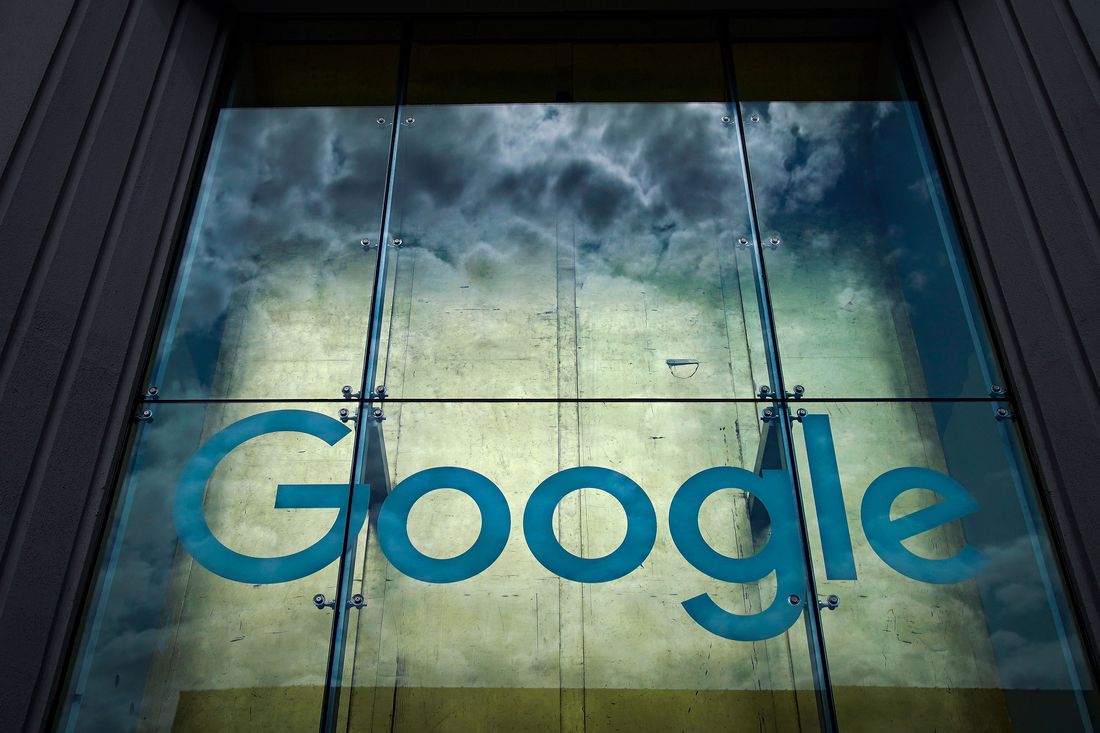
Late last month the Department of Justice filed a long-anticipated antitrust lawsuit against Google, accusing the company of engaging in anti-competitive practices. It’s the most aggressive challenge the DOJ has made against a tech giant since it accused Microsoft of anti-competitive practices in 1997. The lawsuit homes in on Google’s search dominance in the United States (Google represents 80 percent, according to the complaint) and the practices and deals that have solidified that claim. The case is sure to take years, but the ramifications for Silicon Valley — and the country in general — may be huge. Intelligencer spoke with Scott Galloway, marketing professor at NYU Stern School of Business and co-host of Vox Media’s Pivot podcast, about the complaint, the potential remedies, and the odds that a tech executive will end up in handcuffs sometime after Election Day.
What is your initial read of the DOJ’s complaint?
Antitrust action is overdue and late. But at the same time, the fear around this is that it may have been hurried as an opportunity for the administration to score points before the election, which may have diminished the voracity of the suit — as evidenced by the fact that a number of DOJ lawyers stepped back from the case this summer, saying they weren’t ready.
You can bet that Google has been preparing for war for years. There are 40 lawyers at the DOJ working on the Google antitrust case. I bet Google has 400 lawyers working on this across its various law firms, probably 50 to 100 PR executives, and probably 50 lobbyists whispering in every elected official’s ear. If you believe that antitrust is important for business and society, this is troubling.
You’re worried that Google is now more powerful than the United States Department of Justice. If the DOJ can’t stop Google, who can?
Well, that’s the frightening thing. There was no whisper of that fear 30 years ago when the DOJ went after Michael Milken. At that point, he was one of the wealthiest people in the country, but there was a general assumption that he was fucked, that the army of lawyers from the DOJ could overrun him. Likewise, when the DOJ sued Microsoft 30 years ago, nobody voiced concern that the DOJ wasn’t ready to take on the company, which was arguably the master of the universe and the Google of its era.
When you think about it over the last 30 years, tax rates on corporations and the wealthy have plummeted. Corporate profits have exploded, and it reflects an imbalance. The result may be that the DOJ is outgunned. That’s the fear. And it reflects a broader sickness in our society that when the sheriff is scared of the outlaws, the town is going to be dysfunctional. Having said that, the thing that gives me a little bit of comfort is the narrowness of the DOJ’s complaint.
Is that because the DOJ is being shrewd?
History doesn’t repeat itself, but it echoes. This is an echo of the DOJ case against Microsoft. And the DOJ, which was initially successful against Microsoft, said that Microsoft was using bundling power and economic might to force every computer hardware manufacturer to bundle Internet Explorer. The DOJ is taking a page out of that notebook and saying, “Google has been bundling its search with the biggest distribution points, whether it’s Apple or Mozilla.”
I think they’re smart to start narrow because the DOJ and/or the state attorneys general themselves can then broaden it. A lot of people would argue that Google’s monopoly abuse in the ad market is greater, and I think there was disappointment that the DOJ didn’t go for one big coordinated strategy across the whole of Google or that it wasn’t one big antitrust case against all of Big Tech, going gangster on Google, Facebook, and Amazon. The overlap of efficiencies and arguments might’ve made for a bigger, more impactful case that would have to play out faster across more monopolies.
But I actually feel pretty good about this because they’re starting narrower, which means they can’t screw up too badly and it can be expanded. And I think you’re going to see a hypothetical Biden administration — assuming the polls are right — run with this.
It seems as if the DOJ complaint is on behalf of competitors and not necessarily the consumer. Why?
Consumer sentiment is always kind of the backdrop. The DOJ has to go after Google based on existing laws. What Congress might do — and the DOJ didn’t want to wait — is write new laws that are more about market power than where antitrust has been since Robert Bork [the judge and legal scholar considered to be the godfather of antitrust law in the U.S.] in the late ’70s and ’80s. Right now the thinking is that it’s a consumer harm test, and the primary metric for consumer harm is prices. Because the majority of products Google and Facebook make are free to the consumer, that makes it difficult to press the case on behalf of consumers. I think under the current antitrust laws, they were probably smart to represent anti-competitive practices — Google is harming other companies.
What can we learn from the E.U.s stabs at these sorts of cases? Is there any sort of road map?
We can learn from the E.U. I would argue that a lot of the regulation there that was meant to be an opposing force or a weapon to turn back to Big Tech has ended up being a weapon to further defend and entrench Big Tech. The additional privacy regulations that Big Tech now has to comply with, like GDPR, is a nuisance, but it’s a nuisance they can much better afford than small and medium-size companies. It’s not like Big Tech is making less money or being less aggressive in Europe. I think we learned from that model. It’s important, but I’m not sure we take from it a playbook around specific regulation. It might be my bias just because I think you have to break them up.
How realistic is it that this case leads to the government breaking Google up?
My thesis all along is that the government will never have the opportunity to actually legally break these guys up, because Big Tech’s lawyers will have a meeting well before that decision is announced to decide on their own to prophylactically break themselves up. These companies are worth more separate. Bezos can say, ‘Well, what if I spin Amazon’s cloud service?’ If they agree, he still controls both firms. He is still the largest shareholder and he gets richer. I’ve always maintained that if Google had to spin Google Cloud and YouTube, the shareholders benefit. The sum of the parts may be greater than the whole.
What about regulation, what is at stake for Big Tech in this election?
I don’t think there’s any getting around the fact that if the administration changes, there’s going to be more thoughtful regulation. I think tech probably benefits in the short run if Trump is reelected, but probably is worse off in the long run because healthy, consistent trade policy and technology policy are good for these guys. If Trump is reelected there are probably bigger winners and bigger losers based on what Trump decides to do that day, whether it’s trying to block the acquisition of Time Warner by AT&T or his disdain for Jeff Bezos, there’ll be more of what I call “border skirmishes” with specific companies.
You have used climate change as an analogy for Big Tech’s expansion. What apocalyptic meltdown are we marching toward?
The apocalypse is that we have become overrun by private power; that’s what I was talking about with the DOJ and Google. When private corporations start meddling, government is no longer a countervailing force. In fact, it becomes a co-conspirator. I think we’re very close to that tipping point. When Amazon has more full-time lobbyists living in Washington, D.C., than there are sitting U.S. senators, when the Facebook communications department is beginning to rival the number of journalists in the newsroom at the New York Times, the question is: Have we become overrun?
The algebra of deterrence has failed. When Aunt Becky got caught bribing coaches to let her daughters into universities, she had to do a perp walk and went to jail. You bet that the next time a wealthy Hollywood actress gets a call from a friend saying, “For a quarter of a million dollars I can get Susie into USC,” they will say, “No, thank you.” So it works. People have a very healthy fear of prison. But the algebra of deterrence has totally failed around Big Tech. When you fine Facebook $5 billion — less than one percent of its market capitalization — for potentially perverting our democracy, for decreasing the respect and the validity of our elections, you don’t have an algebra of deterrence. You have an algebra of enablement. You are encouraging people to break the law because the downside, if you get caught, is one percent of the market capitalization. The government is not deterring Big Tech from breaking the law, it’s sort of encouraging it. If you want to clean up a lot of problems in Big Tech, you can do it with one image: a Big Tech executive doing a perp walk.






























